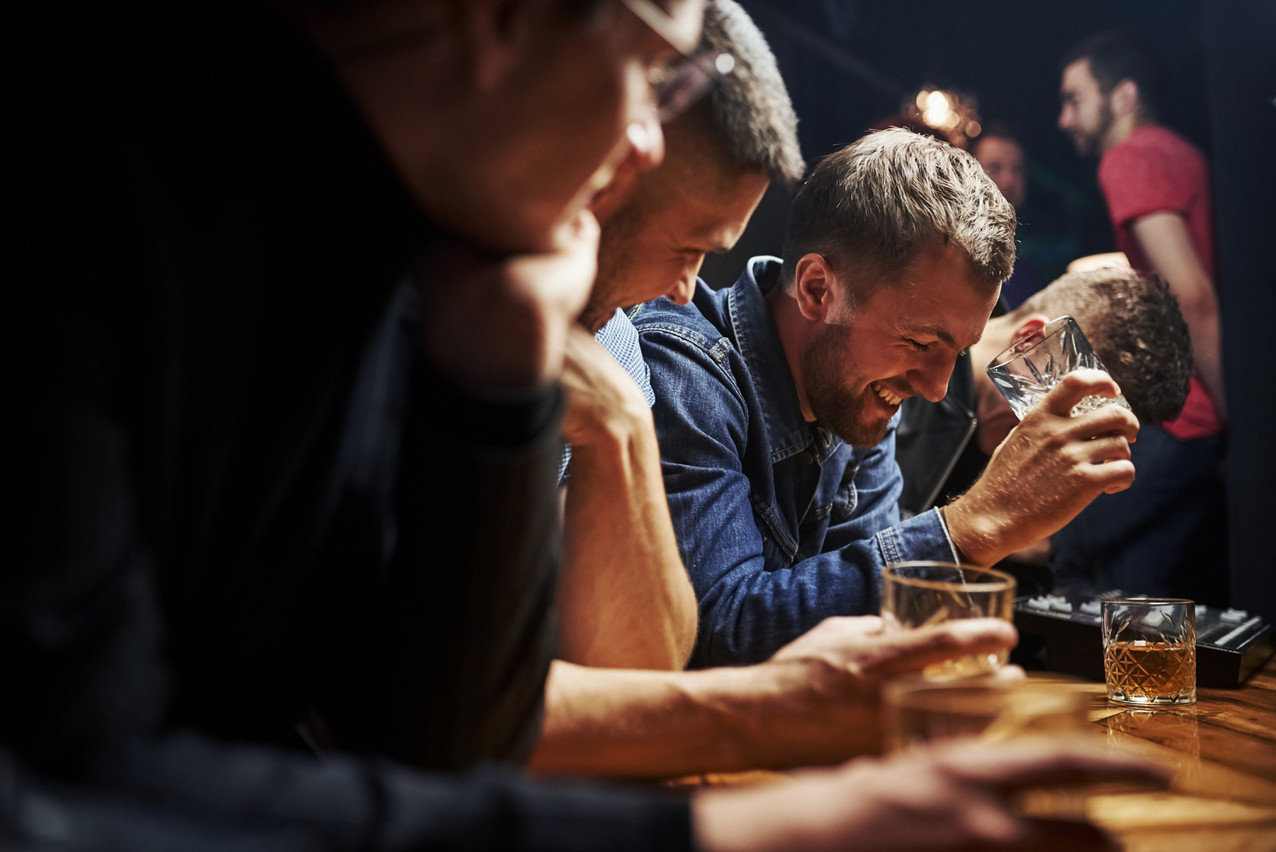The concept in theory is straightforward: from 1 January to 31 January, participants may not consume any alcoholic drinks. For some, this is a way to give their body a break after the festive period, for others, it’s a yearly tradition. For the Fondation Cancer, it represents an opportunity to raise awareness about the dire consequences of casual or intensive alcohol consumption.
Learning through failure
Florence* lasted six days, she told Delano laughing. “A friend motivated me to participate,” a challenge she agreed to. The first hurdle: Dry January coincided with an important family vacation. This ended up putting Florence’s motivation on hold. Though her six-day experience didn’t allow her to notice many improvements, Florence underlined that she usually only has a drink or two on the weekend or on holidays, “so alcohol isn’t really a big issue for me to begin with.”
She acknowledged that it was difficult to avoid alcohol during social events, but “it’s important to take a step back and notice what you consume.” In her failure, Florence sees an opportunity: “I’d like to try again in February. That way there will be less social pressure.”
I realised that only being able to stop for seven days was not normal.
For Christophe*, who considers himself a frequent drinker, the challenge brought on a deeper reflection on his habitual drinking. “I managed to abstain for 8 days,” he said. “Then I met up with friends and had three drinks.” It was the social context that made him break his resolution. A silver lining presented itself to him, as through this, Christophe became more conscious of his drinking habits.
To test whether he can go beyond his addiction, Christophe now wants to start his own personal challenge of 40 days. “I realised that only being able to stop for seven days was not normal,” and he wants to become more aware and intentional in his enjoyment of alcohol. As an amateur of fine wines and celebrations, completely giving up alcohol remains off the cards for now. But even if “I feel good and healthy, picking up a drink here and there… there is always an excuse to drink”--a behaviour Christophe wants to break away from.
Luxembourg alcohol consumption above EU average
Though indulging in a glass to wind down or socialise here and there isn’t the end of the world, there is no safe level of drinking says the World Health Organisation. If consumed regularly and in high doses, alcohol even becomes the second biggest risk factor--after tobacco--in causing cancer, by impacting hormones and the liver, for instance. It can also lead to unintentional injuries and death, or unsafe behaviours--like unprotected sex--which can result in the transmission of diseases, as Euronews
Read also
Luxembourg residents, with an average consumption of 12.4L of pure alcohol per year, were amongst the EU’s heaviest drinkers in 2019, ranking sixth among EU member states. The grand duchy also had a higher percentage of daily drinkers (8.9%) than the EU average (8.4%). On a weekly basis, 43.1% of the eligible population in Luxembourg consumed alcohol in 2019.
In light of this, and the difficulty of alcohol-free socialising as evidenced by Florence and Christophe, some have taken action on the local scene. in response to the prevalence of boozy socials, so that those who prefer to remain sober can also party. Others will hope for better luck during the next Sober Buddy Challenge.
*Names were changed at the request of the interviewees.
